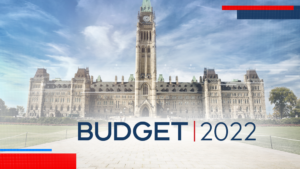Hub Blogs
Good Friday
Transforming the mortgage experience during inflationary times
By Rob Shields
Special to the Financial Independence Hub
In a recent Questrade research study conducted by Leger¹, more than 8 in 10 Canadians (84%) expressed worry about the rising costs of inflation; two in five (39%) said they were very worried.
Rising inflation and the impact on mortgage costs have many worried, especially the younger demographic: approximately 45% of those polled.
The survey also found that Canadians aged 18 – 34 understand the importance of investing early and are much more likely to be investing more in their RRSPs to buy a home. Happily, this generation is committed to planning ahead, and will benefit from programs like the Home Buyer’s Plan when the opportunity is right.
Rebuilding the home ownership experience from the ground up
To ease current consumer anxiety, address pain points associated with home buying and mortgages, and help Canadians on their journey to financial independence, QuestMortgage® has been introduced as a direct-to- consumer mortgage offering to help make home ownership easy and affordable.
Designed as a simple, digital service for those looking to buy a first home or renew their mortgage, it is an alternative to traditional mortgages: available online 24/7, without the need to ever visit a branch. A QuestMortgage BetterRate™ offers low rates at the outset, with a team of dedicated mortgage advisors accessible to guide clients through the entire application process. The new service aims to change the status quo, making the process of home ownership straightforward, transparent and stress-free for Canadians of every age. Continue Reading…
Budget 2022: as feared, an NDP-influenced Spendathon

Ottawa has just released its federal Budget 2022, which seems to validate the pre-release fears that a de facto Liberal NDP coalition would be a high-spending, high-taxing affair. You can find the full budget documents at the Department of Finance web site here. It is as expected “a typical NDP tax-and-spend budget,” as interim Conservative Leader Candice Bergen told the CBC.
Budget 2022 is unmemorably titled A Plan to Grow Our Economy and Make Life More Affordable, weighing in relatively slim by federal budget standards: just shy of 300 pages. Of course, the NDP is all over this document, which is why I call the de facto coalition the LibDP.
Naturally, the NDP’s pet priority is included, with $5.3 billion over 5 years for national dental care. As CTV reported, the program will offer dental care to families with annual incomes below $90,000, with no co-pays for those under $70,000 annually in income. The first phase in 2022 will offer dental care to children under 12.
Big focus on affordable housing
Of the $56 billion in projected new spending over six years, $10 billion is going to housing over five years, with a one-time $500 payment to those struggling with housing affordability. And as expected, foreign buyers will be shut out of the market for condos, apartments, and single residential units for the next two years.
They are also cracking down on home flippers, introducing new rules as of January 2023, such that if anyone sells a property held for less than 12 months it would be considered to a flip and be subject to full tax on their profits as business income (with some exceptions in certain special cases).
National Defence will get $8 billion over 5 years, There’s $500 million for military aid to Ukraine and $1 billion in loans.
Perhaps we should use CTV News’ phrase and describe the spending as “targeted”:
The budget proposes $9.5 billion in new spending for the 2022-23 fiscal year — with the biggest ticket items focused on housing supply, Indigenous reconciliation, addressing climate change, and national defence — while also set to take in more than $2 billion in revenue-generating efforts.
New “Minimum Tax Regime”
CTV reports that Budget 2022 “puts high earners on notice that the government thinks some high-income Canadians aren’t paying enough in personal income tax.” The Liberals say they will be examining “a new minimum tax regime, which will go further towards ensuring that all wealthy Canadians pay their fair share.”
Here is the Globe & Mail’s initial overview (paywall.) Or click this headline:
According to the Globe, the planned bank tax is different from the initial proposal from the Liberal’s 2021 election platform: rather than a three percentage point surtax on earnings over $1-billion, the budget announces a 1.5 percentage point increase on taxable income over $100 million. That brings the tax rate on those earnings from 15% to 16.5%.
In addition to $4-billion for cities to build 100,000 new homes, Ottawa will provide tax-free home savings accounts of up to $40,000. Future first time homebuyers will get an RRSP-style tax rebate when they contribute and the money can grow tax free. First-time homebuyers will also get a tax credit of $1,500 and a home renovation tax credit of up to $7,500 to help families add second suites for family members. Continue Reading…
Gen Z is Canada’s most engaged generation for tracking Financial Goals
 Move aside, Boomers: Gen Z is coming through!
Move aside, Boomers: Gen Z is coming through!
According to BMO’s annual Investment Survey, Gen Z is now Canada’s most engaged generation for tracking financial goals.
Younger Canadians are flexing their financial savvy by evaluating their financial goals and plan more frequently than any other cohort: including Boomers!
According to the survey, 62% of Gen Z (aged 18-25) and 54% of Millennials (age 26-41) review their financial goals at least quarterly, with 41% of Gen Z and 29% of Millennials doing so monthly. In comparison, only a third (36%) of Boomers (aged 58-67) review their financial plans at least once a quarter and only 15% of them do so monthly.
“It’s exciting to see the next generation of Canadians building solid financial habits and establishing a foundation early” said Nicole Ow, Head, Retail Investments at BMO, in a press release, “Real financial progress is a lifelong pursuit as our goals and circumstances change throughout our lifetime. We encourage Canadians of all ages to consider ways not only to grow their wealth and work towards immediate financial goals, but also to ask their advisor how they can align their investments with their values, define their longer-term goals, and protect and share their wealth with their loved ones and the causes that mean the most to them.”
Social media a big influence
While the survey found the majority of young Canadians rely on advice from a professional when making financial decisions, what’s more interesting is the additional sources they are seeking out for guidance. Many are currently working with a financial advisor, and 47% of Gen Z and 32% of Millennials say they were referred to their advisors on the advice of a trusted friend or family member. The impact of social media on the financial habits of young Canadians also mustn’t be overstated. A third of Gen Z and 22% of Millennials refer to financial influencers and social media for their investment decisions. In comparison, only 7% of Canadians over 55 utilize these sources.
Barriers to Entry
Among younger Canadians with savings primarily held in cash, half of Gen Z and close to two fifths of Millennials say the primary reason for this is that they do not know how to invest. Whether it’s not knowing where to begin, or being unsure who to trust with their finances, a lack of basic financial literacy skills being taught in schools may be partly to blame for this. Thankfully, the previously mentioned alternate sources that young Canadians seek out can help to educate those feeling overwhelmed. Continue Reading…




